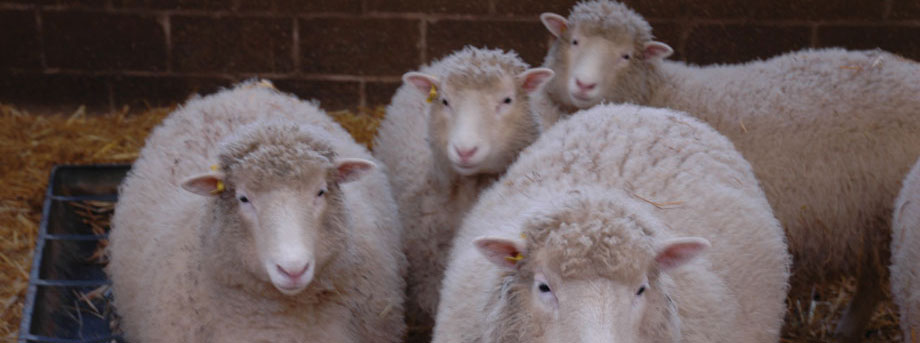Hello Dollies…
March 8th, 2011
Four new Dolly the Sheep have been created at the University by Professor Keith Campbell, the scientist behind the original breakthrough 14 years ago.
Frozen cells taken from the mammary gland used to clone the original Dolly were obtained from the Hannah Institute in Scotland. These were thawed, cultured and then used to clone the four animals in Prof Campbell’s laboratory in the Animal Sciences Division at the University. The Dollies were born at the University to recipient mums. They are now fully grown and thriving along with eight other cloned sheep.
Prof Campbell, from the School of Biosciences, is a cell biologist and embryologist working under a Home Office licence. His research is focused on improving the nuclear transfer techniques of manipulating eggs.
Prof Campbell said: “The new Dollies are living proof that the original problems of cloning animals have been resolved and there has been a significant increase in the efficiency of live offspring.
“These Dollies have got the life of Riley; they potter around and get fed. They’ve got a paddock and a stable and a barn in the winter. We are not doing anything to them, they have no health concerns and they show none of the signs of developing the arthritis that Dolly had.”
There are 12 healthy cloned sheep on the University farm but only four — now over three years old — are identical to the original Dolly.
Prof Campbell said: “There are many benefits to understanding the development of clones. This research gives us an insight into the normal development of embryos and the way cells specialise – an area which plays a key role in stem cell research.”
His research continues in the hope of gaining a better understanding of the cloning process and development of embryos which has great implications for human development, animal development and stem cells. There are also agricultural applications of the cloning process, including genetic alteration for production of disease-resistant animals, altering the metabolism of animals to reduce environmental impact – should future legislation allow it.
Prof Campbell said: “In my opinion the use of these technologies in agriculture is an essential addition to maximise production, improve health and reduce environmental impact. In essence genetic alteration is organic farming.”
Tags: Animal Sciences Division, clone, Dolly the Sheep, embryos, genetic alteration, Professor Keith Campbell, School of Biosciences
One Comment
Other News

Need news? See you on SharePoint
After 14 years of service, Campus News is being retired as the university’s staff news platform. […]

Roads and car parks closed for refurbishing work
As part of ongoing road improvements at the university, works will be taking place to resurface […]



September 16th, 2013 at 4:47 pm
Matt from Sapcote
We have to keep innovating otherwise we will run out of all resources!